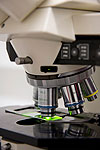 Having a heart attack is no small thing. It is definitely a traumatic, life-changing event that can leave a patient feeling physically vulnerable. Heart attack patients often express concern about how much strain the heart should be subjected to once they are discharged from the hospital. If you find yourself in this situation or someone you know does, here is some health news that may be vitally important to your/their recovery. According to a recent study performed at the St. Luke’s Hospital Mid-America Heart & Vascular Institute in Kansas City, one in five patients who are hospitalized for heart attacks develop anemia, because so much of their blood is drawn for routine diagnostic tests.
Having a heart attack is no small thing. It is definitely a traumatic, life-changing event that can leave a patient feeling physically vulnerable. Heart attack patients often express concern about how much strain the heart should be subjected to once they are discharged from the hospital. If you find yourself in this situation or someone you know does, here is some health news that may be vitally important to your/their recovery. According to a recent study performed at the St. Luke’s Hospital Mid-America Heart & Vascular Institute in Kansas City, one in five patients who are hospitalized for heart attacks develop anemia, because so much of their blood is drawn for routine diagnostic tests.
What’s even more troublesome is that this anemia often persists for a month or more after discharge and could mean worse outcomes — even death — down the line. These patients actually feel worse after they leave the hospital and rates of mortality are higher, too.
The study authors looked at electronic medical records for almost 18,000 patients who’d had a heart attack at one of 57 U.S. hospitals. All the patients had normal hemoglobin levels when they were admitted. However, 20% developed moderate-to-severe anemia by the time they left the hospital.
The researchers determined that the average patient had 173.8 milliliters of blood drawn for testing, or about half a unit of whole blood. That was about 100 ml higher than the blood drawn in patients who didn’t develop moderate-to-severe anemia. The researchers calculated that the risk of anemia rose 18% for each 50 ml of blood drawn. There were also differences in the amount of blood drawn from hospital to hospital.
So what is a heart patient to do under these circumstances?
Fortunately, the researchers have a few suggestions that could help fix the problem. One option would be to use smaller pediatric tubes to draw the blood rather than adult-sized tubes. According to the research doctors, pediatric tubes are perfectly adequate for most of the tests that need to be done and can drastically reduce the amount of blood lost. Fewer blood draws also would help. And finally, it may be possible to use blood already drawn and already in the lab for subsequent tests.
To complicate matters, less testing could also result in medical problems. You’ll want to get your doctor’s advice when it comes to blood tests. It seems that too many can have an impact on your health, as can too few.
